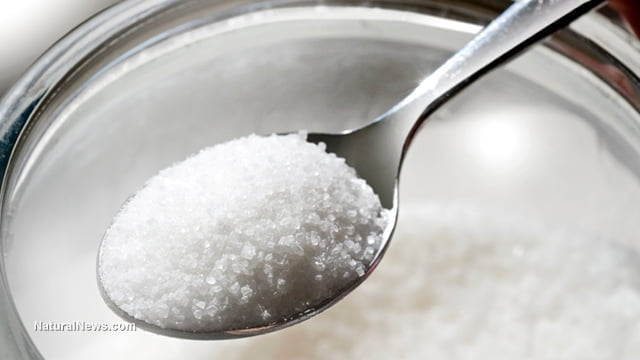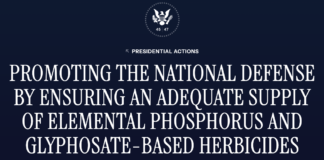
In 2016, approximately 1,685,210 new cases of cancer will be diagnosed in the U.S., and more than 595,690 Americans will die from the disease, according to the National Cancer Institute. It is thought that the most common cancers to be diagnosed this year will be:
- Breast cancer
- Lung and bronchus cancer
- Prostate cancer
- Colon and rectum cancer
- Bladder cancer
- Melanoma of the skin
- Non-Hodgkin lymphoma
- Thyroid cancer
- Kidney and renal pelvis cancer
- Leukemia
- Endometrial cancer
- Pancreatic cancer
The National Cancer Institute goes on to note that approximately 39.6 percent of men and women will be diagnosed with cancer at some point during their lifetimes, and national expenditures for cancer care in the U.S. are estimated to total $156 billion by 2020.
New research reported on in The New York Times points to the fact that lifestyle choices are more important than genetics when it comes to developing cancer. Though a person might have genetic risk factors for cancer, it is their lifestyle choices that will activate certain genes and allow cancer to develop.
Cancer isn’t something that appears out of nowhere; it develops over many years, as a result of the combined effects of daily lifestyle choices. Sugar consumption is being highlighted as playing a large role in the activation of cancer genes – with sugary drinks in particular believed to fuel the growth of cancer cells.
Sugar and cancer
As reported by The New York Times, the new study found that drinking sugar-sweetened beverages is linked to an increased risk of endometrial cancer in postmenopausal women. This is the first study to find the same association between sugar and cancer as exists between sugar and Type 2 diabetes.
The study, published online in the journal Cancer Epidemiology, Biomarkers and Prevention, has found that all sugars increase the risk for Type 1 endometrial cancer – but sweetened drinks have the biggest impact of all. Those who were in the highest 20 percent for sweet drink consumption had a 74 percent higher risk of developing cancer than those in the lowest 20 percent.
Compared with most other dietary sugars, sugars in drinks cause plasma glucose levels to rise higher and fall lower, and it is thought that these fluctuations may play a role in the increased risk of cancer. But this isn’t the first time that sugar has been linked to cancer. Using MRI scanners to look for glucose, a study published in Nature Medicine found that glucose causes tumors to light up brightly as they contain high sugar levels. Tumors consume much more glucose than normal tissue due to their abnormally elevated metabolism levels – so sugar actually feeds cancer cells and helps them to grow.
This perhaps explains why those who drink sweetened drinks on a regular basis are much more likely to develop cancer than those who don’t; the sugar they are consuming feeds the growth of tumor cells. As reported by Natural News, sugar creates an acidic environment in the body that allows tumors to thrive. It also causes inflammation in the body. Eliminating refined sugar from your diet can help to reduce your chances of developing cancer.
Disclaimer: We at Prepare for Change (PFC) bring you information that is not offered by the mainstream news, and therefore may seem controversial. The opinions, views, statements, and/or information we present are not necessarily promoted, endorsed, espoused, or agreed to by Prepare for Change, its leadership Council, members, those who work with PFC, or those who read its content. However, they are hopefully provocative. Please use discernment! Use logical thinking, your own intuition and your own connection with Source, Spirit and Natural Laws to help you determine what is true and what is not. By sharing information and seeding dialogue, it is our goal to raise consciousness and awareness of higher truths to free us from enslavement of the matrix in this material realm.
 EN
EN FR
FR


























The consumption of white refined sugar is the fastest way to be sweet and feel good. For the part of us that is named “I” it’s a quick and instant comfort, returning to a sense of physical well being. The sweetness of mother’s milk is the first taste a human baby perceives and desires for satisfaction.
This deep instinctual need for the sweet taste is what makes us crave for sugar, be it natural or artificial. For it’s “quick fix” refined sugar causes a similar quick disbalance of our bloodsugar-level.
Hence the loop of craving and the development of chaos in the insulin-chemistry aka diabetes.
Tiredness of that function results in disfunctioning and from than on one is dependent on external fix.
White refined sugar has been stripped off its natural elements like minerals and other nutrients, and that process prevents it from being processed in a balanced way. For white sugar, to be processed properly, it seeks the balance with its natural components and takes them from the human body wherever it can find it. Hence the start of unbalance throughout the physical configuration as a whole.
Once white refined sugar is removed from our diet, our taste buds begin to determine the sweet taste in many other food products. For example the sweet taste in oats, brown rice, carrots, beetroot, pumpkin, sweet fruits, licorice and milk. There’s more, I’m sure.
Organic quality of food provides stronger flavours and keeps its structure alright for a much longer time, compared to non-organic food, specially in vegetables and fruit. It lasts much longer too, outside the fridge. I’m a long time experienced nutritionist and organic consumer and always try out ways of living without electricity, hence the mentioning of “outside the fridge”. I’ve never eaten from the freezer, for food coming from that sarcophage is dead to me. (forgive the pun please)
I know, there are circumstances where it’s very very practical to have one. I’m just sharing my own preferences, I won’t refuse sharing a meal with you, when it’s defrosted. I always say “Food should be enjoyed, not discussed” when sharing a meal. I’ve always lived on a sober diet, on small portions.
Back on topic, the consumption of natural sweet food ensures a more balanced digestive condition in our body, without the pendulum going from high to low in extremes, mirrored by our digestion of impressions coming from the outside world, the extremes of what television offers us, the herion for our brain. That condition creates the craving for instant meals, containing much sugar nowadays.
I honestly think that there’s a deliberate choice to add that sugar. It’s as much a treadmill as the enslavement of a working life 9 to 5. Who’s benefitting from it? I guess most of us here know that.
Natural sweets in food provides for a much slower process in comforting the “I” in us. The part of us that experiences itself as “I”. Look how children immediately calm down after sitting for hours at the tv screen, watching modern cartoons, when given sweets with refined sugar. A very convenient and instant fix. To me, that’s the nature of our modern Western lifestyle: a quick fix is all we need.
The “quick fix” of white refined sugar has replaced our original aka natural tendency to “educate” our emotional balance, in nurturing the “I” in us from an emotional and spiritual level.
When we’re cared for and are nurtured, as babies, with good food and unconditional love from our caretakers, that source of sweetness provides for a sense of wellbeing that doesn’t crave for that fix from the outside world, found in the sugar bowl.
To say it in a simple way, our craving for a sweet taste in food, seeking relief instantly, is a sublimation of our craving for emotional nurturing and comfort. Therefore emotional resilience is an essential part call it an ingredient if you will, of that sensation of inner natural sweetness we thrive on naturally, as human beings with a soul. The comfort of being sweet, not only from a childish perspective, coming from fear of punishment.
On the contrary, it’s about simply feeling good, from within, in good health on all levels. We’ve got to feed our inner children with a sweetness that holds disciplin as close companion. But not a disciplin coming from strictness, as if an authority outside of us decides for us. It needs to have its source within us, for that’s what mastery truly is.
That last view of mine indicates the importance of feeding our offspring properly and the value of applying that stance in non-food issues at the same time. I’ve been a Nanny for many years in my life. A la Mary Poppins style. Although I replace the umbrella and choose a broomstick to fly on too, now and than.